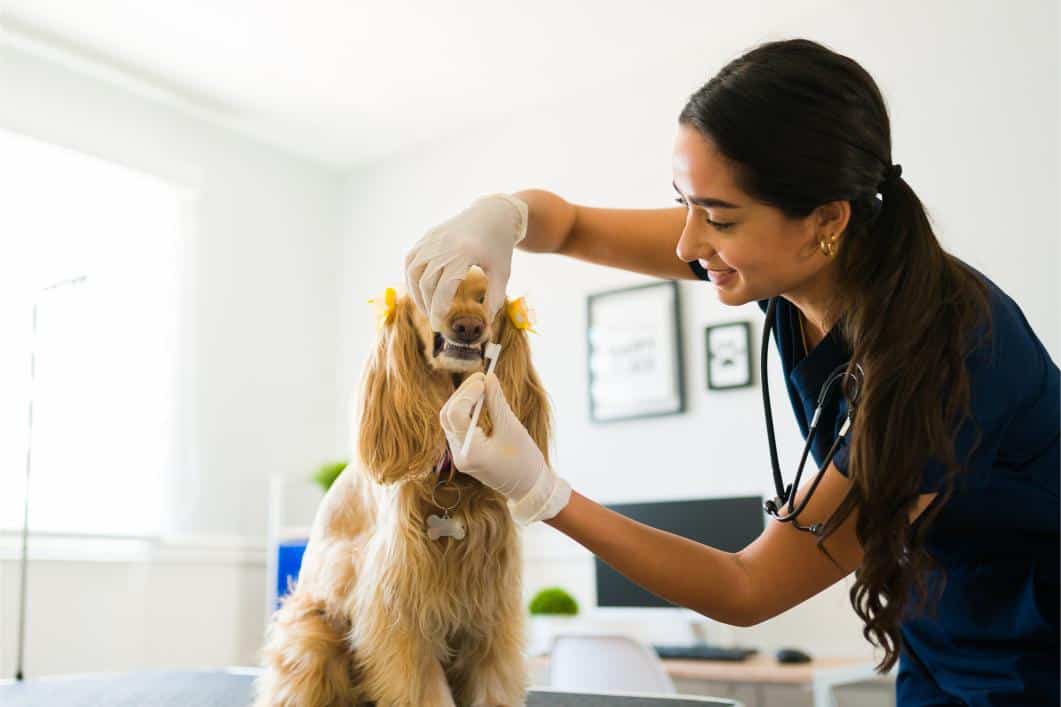Importance of Pet Dental Care

Dental care is an extremely important aspect of overall pet wellness. The simple act of caring for your pet’s teeth and gums can have as much impact on health as nutrition, exercise, and veterinary care. In fact, dental care can add to a pet’s overall vitality, and even impact longevity.
Pet Dental Exams
We look inside a pet’s mouth every time they come to see us. This allows us to assess the appearance of the teeth and gums in a quick view, but for a full view of teeth and gum health, we need to perform a full dental exam. If there is evidence of plaque and tartar, we will discuss the possibility of scheduling a professional dental cleaning under general anesthesia.
Veterinary Dentistry
Plaque is the by-product of oral bacteria and undigested food particles. If left alone, plaque is calcified by the minerals found in saliva. Also known as dental calculus, tartar has a way of building up on the molars over time. Slowly, pockets form between the teeth and gums, allowing more room for oral bacteria to multiply and spread.
While veterinary dentistry can interrupt the damage caused by periodontal disease, it is progressive and irreversible. If we catch problems early, say, during stage 1 of periodontal disease (which is gingivitis, or inflammation of the gums), we have the greatest chance of effective treatment. Advanced periodontal disease is characterized by severe pain, tooth loss, and infection. Periodontal disease can also be linked to serious health conditions like heart disease, kidney disease, or liver disease.
Dog and Cat Dental Care
Dental health hinges on prevention. This means that a lot of heavy lifting should be done at home by way of brushing, water additives, dental toys, treats, and chews. Removing plaque before it ever becomes tartar is the way to go.
When we see your pets annually, we have the greatest chance of preventing disease. We can give you tips for dental care at home, and discuss the need for a special dental care diet. Coupling these preventive measures with a yearly veterinary dental cleaning will provide the best results.
Digital Radiographs
Periodontal disease can make the gums recede, which means pets can be at risk of infection, tooth and bone loss, weight loss, and pain if it develops.
Digital radiographs, or X-rays, can clue us into the full extent of disease. The ability to identify damage beneath the gum line can help us determine next steps and design a treatment plan that promotes pain relief, comfort, and health.
If you ever see the following signs of dental disease, please schedule an appointment for your pet:
- Bad breath
- Red, swollen, or bleeding gums
- Changes to eating/drinking habits
- Discolored teeth
- Nasal discharge
- Drooling
- Drooping food or chewing on one side
- Weight loss
Our team is always happy to assist you at Caring Paws Animal Hospital. Please call us at (813) 723‑7297 to learn more about any of our veterinary services.

